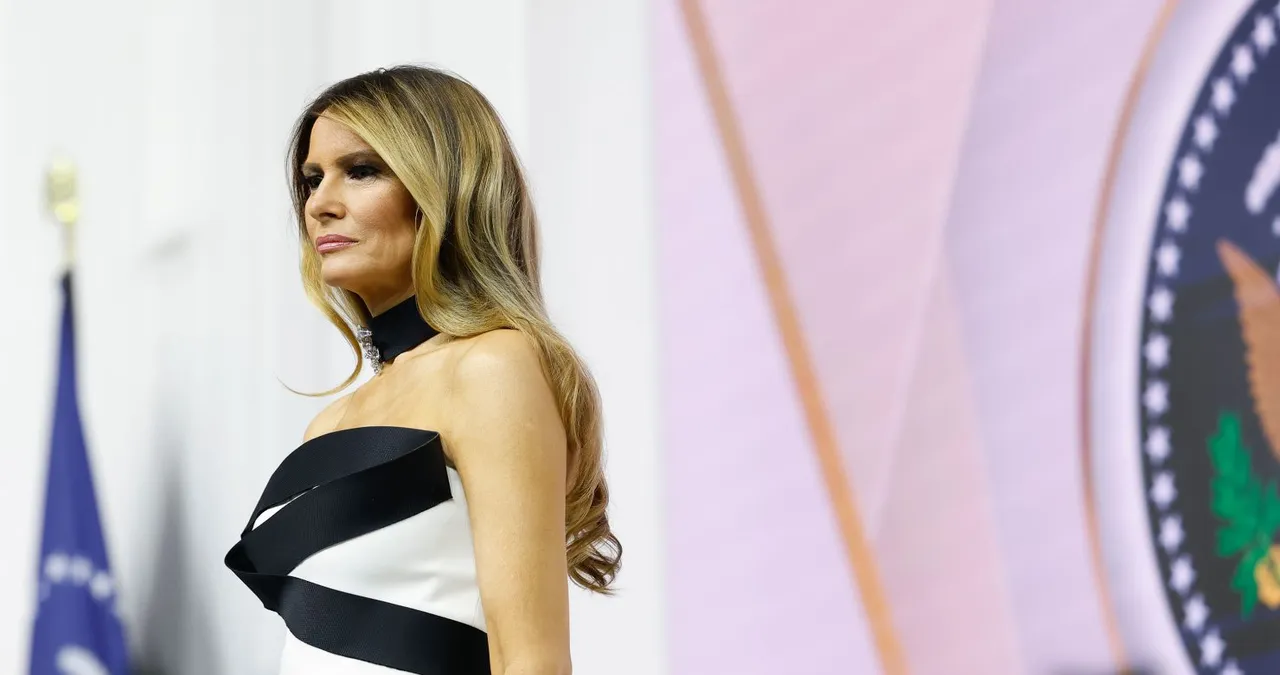Discover the details behind the Melania Trump Lawsuit The View, the media drama it sparked, legal implications, public reactions, and what this means for free speech and defamation in today’s political climate.
Introduction: Setting the Stage
When the phrase “melania trump lawsuit the view” started trending across news outlets and social media platforms, it became clear that this was not just another celebrity headline. It was a story that blended politics, media, and law all in one. Melania Trump, the former First Lady, has long been a subject of fascination and controversy. From her days as a model to her high-profile role in the Trump administration, Melania has often been in the spotlight—sometimes by choice, sometimes not.
The lawsuit involving Melania Trump and The View taps into a bigger conversation about how public figures are portrayed, how television hosts push boundaries, and where the line between free speech and defamation actually lies. For those who have followed her journey, this case feels like another defining moment that highlights the tension between celebrity and scrutiny.
Background: The History Between Melania Trump and The View
It’s no secret that The View has been a lightning rod for heated discussions. With its diverse panel of outspoken women, the show thrives on debating current events, politics, and culture. Melania Trump has often been brought up during conversations, especially when Donald Trump was in the White House.
Over the years, some panelists on The View made comments about Melania that were perceived as harsh or dismissive. From questioning her marriage to poking fun at her public appearances, the banter often turned personal. For some viewers, this was just the nature of daytime talk shows. For others, it felt like a targeted attack on someone who, despite her public role, maintained a relatively private persona compared to her husband.
The lawsuit became the culmination of years of simmering tension. While celebrities often ignore such commentary, Melania Trump has shown a willingness to push back when she feels lines have been crossed. This time, she decided to fight through legal means rather than silence.
The Spark: What Triggered the Lawsuit
At the heart of the melania trump lawsuit the view controversy is a specific segment in which panelists allegedly made claims that Melania and her legal team considered defamatory. While daytime television often thrives on sharp remarks, the issue escalated because these comments went beyond opinion—they hinted at accusations that could damage her reputation.
In the world of law, there’s a difference between satire and defamation. While parody and jokes are generally protected, statements framed as fact—even when casually said—can land a media outlet in hot water. According to reports, Melania Trump believed that The View crossed that threshold. By filing a lawsuit, she signaled that she was unwilling to let narratives about her go unchecked, especially when they risk shaping public perception in a damaging way.
The lawsuit isn’t just about one moment; it’s about establishing boundaries. If the First Lady can be openly mocked on television without consequence, what does that mean for the dignity of the role and for the individuals who serve in it? That is part of the bigger debate unfolding as this case moves forward.
Legal Ground: Understanding the Basis of the Lawsuit
When examining the melania trump lawsuit the view, it’s essential to understand what makes a defamation case valid. Under U.S. law, defamation requires that a false statement was made publicly, that it was presented as a fact rather than an opinion, and that it caused harm to the individual’s reputation. For public figures like Melania Trump, the burden is even higher—they must prove “actual malice,” meaning the statements were made either knowing they were false or with reckless disregard for the truth.
Melania’s legal team appears confident that The View crossed that line. They argue that the comments were not only inaccurate but also made with a disregard for how they would affect her. It’s not the first time Melania has taken legal action; in fact, she has successfully pursued defamation cases before. These past victories may give her team confidence in pursuing this high-profile battle.
From a broader perspective, the lawsuit raises important legal questions. How much freedom should media personalities have when discussing public figures? At what point does commentary stop being protected free speech and become actionable harm? These questions go beyond Melania and touch on the very fabric of American media law.
Public Reaction: Divided Opinions
Unsurprisingly, the melania trump lawsuit the view story ignited strong reactions across the political spectrum. Supporters of Melania Trump argue that she has every right to defend her dignity against what they see as unnecessary and personal attacks. For them, the lawsuit is a powerful statement that even public figures deserve respect.
On the other hand, critics argue that this lawsuit is yet another attempt by the Trump family to silence media outlets that don’t portray them favorably. They see it as a potential threat to free speech, warning that if public figures can sue every time they don’t like what is said about them, it could have a chilling effect on journalism and entertainment.
The polarized reactions highlight just how intertwined Melania Trump’s image is with larger political battles. For some, she is a victim of relentless media scrutiny. For others, she represents the Trump brand’s tendency to confront and control narratives.
Media Responsibility: A Debate Beyond The View
The melania trump lawsuit the view case isn’t just about one talk show. It’s about the broader question of media responsibility. In today’s digital landscape, where a single soundbite can go viral in minutes, the impact of casual commentary is amplified. Words spoken on live television often spread far beyond their original context, shaping narratives and influencing public opinion on a massive scale.
Media organizations argue that they must retain the freedom to critique, analyze, and even poke fun at public figures. But they also bear a responsibility to avoid spreading misinformation or making reckless statements that can cause harm. The balance between those two responsibilities is delicate—and lawsuits like Melania’s force the industry to re-examine where the line should be drawn.
For viewers, the case also sparks reflection. Are we comfortable with our entertainment shows blurring the line between fact and opinion? Do we expect higher standards from respected platforms like The View, or do we accept sharp humor as part of the package? These are questions that will linger long after the lawsuit is resolved.
Comparing Past Defamation Cases
Melania Trump’s lawsuit against The View is not without precedent. Public figures have often taken legal action when they felt media portrayals went too far.
| Public Figure | Case | Outcome |
|---|---|---|
| Carol Burnett | Sued National Enquirer | Won settlement after false claims about alcoholism |
| Hulk Hogan | Sued Gawker | Won massive payout, leading to outlet’s bankruptcy |
| Sarah Palin | Sued New York Times | Case dismissed but reignited debates on media responsibility |
| Melania Trump | Sued UK’s Daily Mail | Won damages and public apology |
Looking at these examples, Melania Trump’s legal action against The View fits within a pattern of public figures pushing back against media outlets. What makes her case unique is the intersection of politics, celebrity, and daytime television—a combination guaranteed to draw public attention.
Quotes That Capture the Debate
“Free speech is not the right to spread falsehoods without accountability.” – Legal Analyst
“Public figures must accept scrutiny, but they should not have to accept defamation.” – Media Lawyer
“Daytime television thrives on bold commentary, but boldness is not a shield from responsibility.” – Cultural Critic
These perspectives highlight the tension at the heart of the melania trump lawsuit the view.
FAQs on Melania Trump Lawsuit The View
Q: What is the Melania Trump lawsuit against The View about?
A: The lawsuit revolves around allegedly defamatory comments made about Melania Trump during a segment on The View. Her legal team argues that the remarks crossed the line between opinion and harmful falsehoods.
Q: Has Melania Trump filed lawsuits like this before?
A: Yes. She previously sued the Daily Mail for defamation and won a settlement along with a public apology, showing her willingness to use the courts to defend her reputation.
Q: Why is this case significant?
A: The case matters because it could influence how much freedom media outlets have when discussing public figures, especially in blending humor, opinion, and factual claims.
Q: How have people reacted to the lawsuit?
A: Reactions are split. Some view it as Melania Trump standing up for herself, while others see it as an attempt to suppress free speech.
Q: Could The View face serious consequences?
A: If the lawsuit succeeds, the consequences could range from financial damages to stricter editorial standards. Even if dismissed, the case already sparks discussions about media responsibility.
Conclusion: What Comes Next
The melania trump lawsuit the view case is more than a legal battle—it’s a cultural moment. It raises important questions about free speech, defamation, media responsibility, and the rights of public figures to defend their reputation. Whether Melania Trump wins or loses in court, the lawsuit has already succeeded in drawing attention to the complex relationship between media and those in the public eye.
As the case develops, it will serve as a reminder that in today’s world, words matter. For Melania Trump, those words have become serious enough to warrant legal action. For the rest of us, the lawsuit challenges us to think critically about how we consume, interpret, and respond to media narratives.




